How To Translate Language On YouTube

BeMultilingual
Dubbing Expert
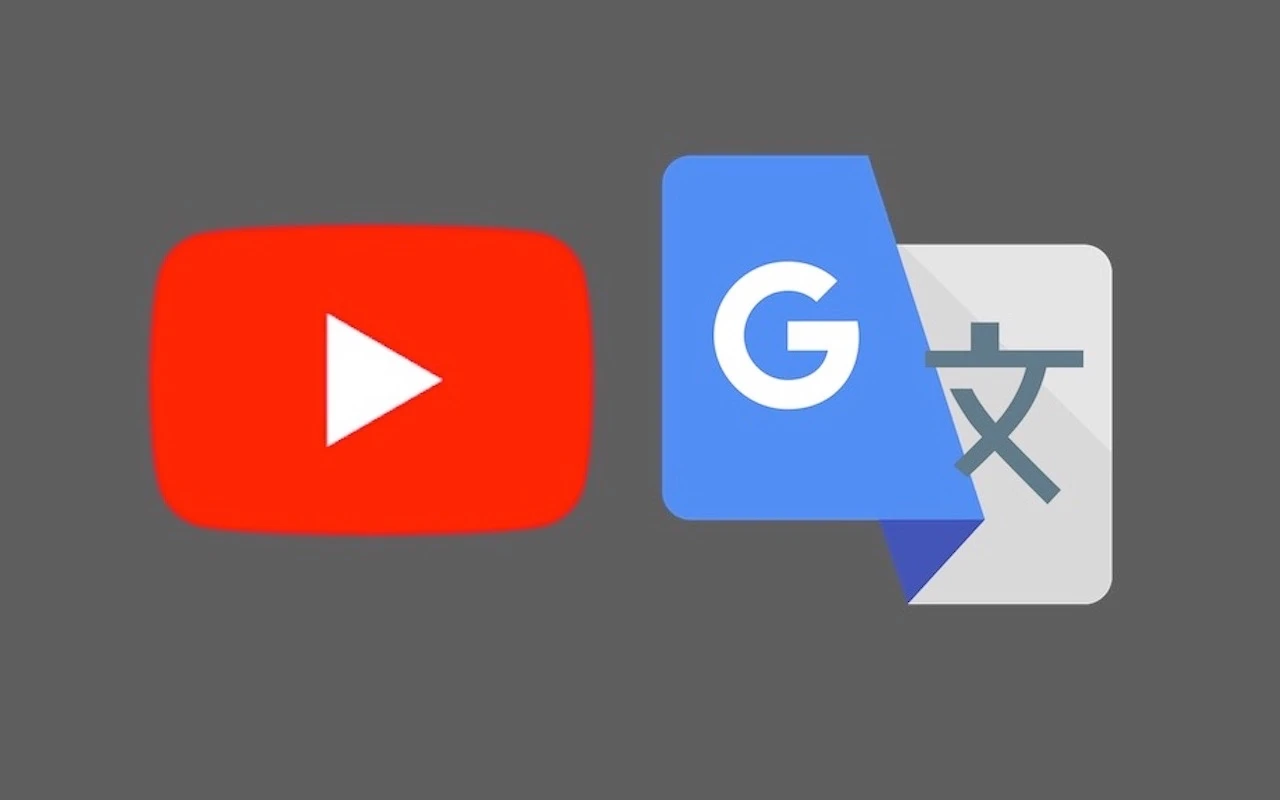
In today's interconnected world, YouTube serves as a global platform where content transcends linguistic boundaries. However, language differences can pose challenges for viewers and creators alike. Whether you're a viewer aiming to understand foreign-language videos or a creator seeking to reach a broader audience, translating content on YouTube is essential. This comprehensive guide will explore various methods to translate languages on YouTube, including adding subtitles, translating captions, and utilizing multilingual options. We'll also discuss the advantages of professional dubbing services like BeMultilingual to ensure high-quality translations.
Understanding YouTube's Translation Features
YouTube offers several built-in features to assist with language translation, enhancing accessibility and user engagement.
Auto-Translated Subtitles
YouTube can automatically translate subtitles into various languages. To enable this feature:
Click on the "CC" (Closed Captions) button at the bottom of the video player to activate subtitles.
Click on the settings gear icon next to the CC button.
Select "Subtitles/CC" and then choose "Auto-translate."
A list of available languages will appear; select your desired language.
While convenient, auto-translated subtitles may lack accuracy, especially with complex terminology or nuanced content. For critical information, relying solely on auto-translation is not recommended.
Adding Translated Titles and Descriptions
Creators can enhance their video's discoverability by translating titles and descriptions into multiple languages:
Sign in to YouTube Studio.
From the left menu, select "Subtitles."
Choose the video you want to edit.
Click "Add Language" and select the desired language.
Under "Title & description," click "Add" and enter the translated text.
This practice can significantly improve a video's reach across different linguistic audiences.
The Importance of Accurate Subtitles and Captions
Subtitles and captions play a crucial role in making content accessible to non-native speakers and the hearing impaired. They also contribute to better comprehension and engagement.
Creating and Uploading Subtitles
To add accurate subtitles to your videos:
Prepare a subtitle file in formats like SubRip (.srt) or SubViewer (.sub).
In YouTube Studio, select "Subtitles" from the left menu.
Choose the video and click "Add Language," then select the language of the subtitles.
Click "Add" under the "Subtitles" column and upload your file.
Manually created subtitles ensure higher accuracy compared to auto-generated ones.
Utilizing Professional Translation Services
For creators aiming for precision and cultural relevance, professional translation services are invaluable. BeMultilingual offers expert translation and dubbing services, ensuring your content resonates authentically with diverse audiences.
Exploring Multilingual Options for Creators
Expanding your content's accessibility involves more than just subtitles. Offering dubbed versions in multiple languages can significantly enhance viewer experience.
YouTube's AI-Powered Dubbing
YouTube has introduced AI-powered auto-dubbing, allowing creators to offer their content in various languages. This feature automatically generates dubbed versions, which creators can review before publishing. However, the quality may vary, and human review is essential to ensure accuracy and naturalness.
Benefits of Professional Dubbing
While AI tools provide a starting point, professional dubbing offers:
Cultural Sensitivity: Ensuring translations respect cultural nuances.
Emotional Accuracy: Capturing the original tone and intent.
Quality Assurance: Providing polished and audience-appropriate content.
Partnering with BeMultilingual guarantees high-quality dubbing that maintains the integrity of your original content.
Tools and Resources for Translating YouTube Content
Several tools can assist in translating and adding subtitles to your videos:
Notta: An AI-powered transcription and translation tool that generates subtitles with high accuracy.
Amara: A web-based platform that allows users to create and edit subtitles collaboratively.
Vidby: An AI-based service specializing in video translation and dubbing.
While these tools offer convenience, combining them with professional services like BeMultilingual ensures the highest quality translations.
Best Practices for Translating YouTube Content
To effectively translate your YouTube content:
Understand Your Audience: Identify the languages spoken by your target viewers.
Prioritize Quality: Invest in professional translation and dubbing services.
Regularly Update Content: Ensure all translated materials are current and accurate.
By following these practices, you enhance viewer satisfaction and broaden your global reach.
Conclusion
Translating content on YouTube is a strategic approach to connect with a diverse, global audience. While YouTube provides several tools to facilitate this process, the importance of accuracy and cultural sensitivity cannot be overstated. Professional services like BeMultilingual offer the expertise necessary to ensure your translations are precise and resonate with viewers worldwide.
For personalized assistance with multilingual dubbing and localization services, contact BeMultilingual today and take your content to new linguistic horizons.
Frequently Asked Questions
We dub 3,000+ minutes monthly, helping our clients generate 100M+ views every month.
Localize My Content →
BeMultilingual
Dubbing Expert
Expert in professional dubbing for YouTube, film & TV, and corporate content—working across more than 40 languages to bring stories to life globally.
Read More
Movie Dubbing Services: 2026 Ultimate Guide
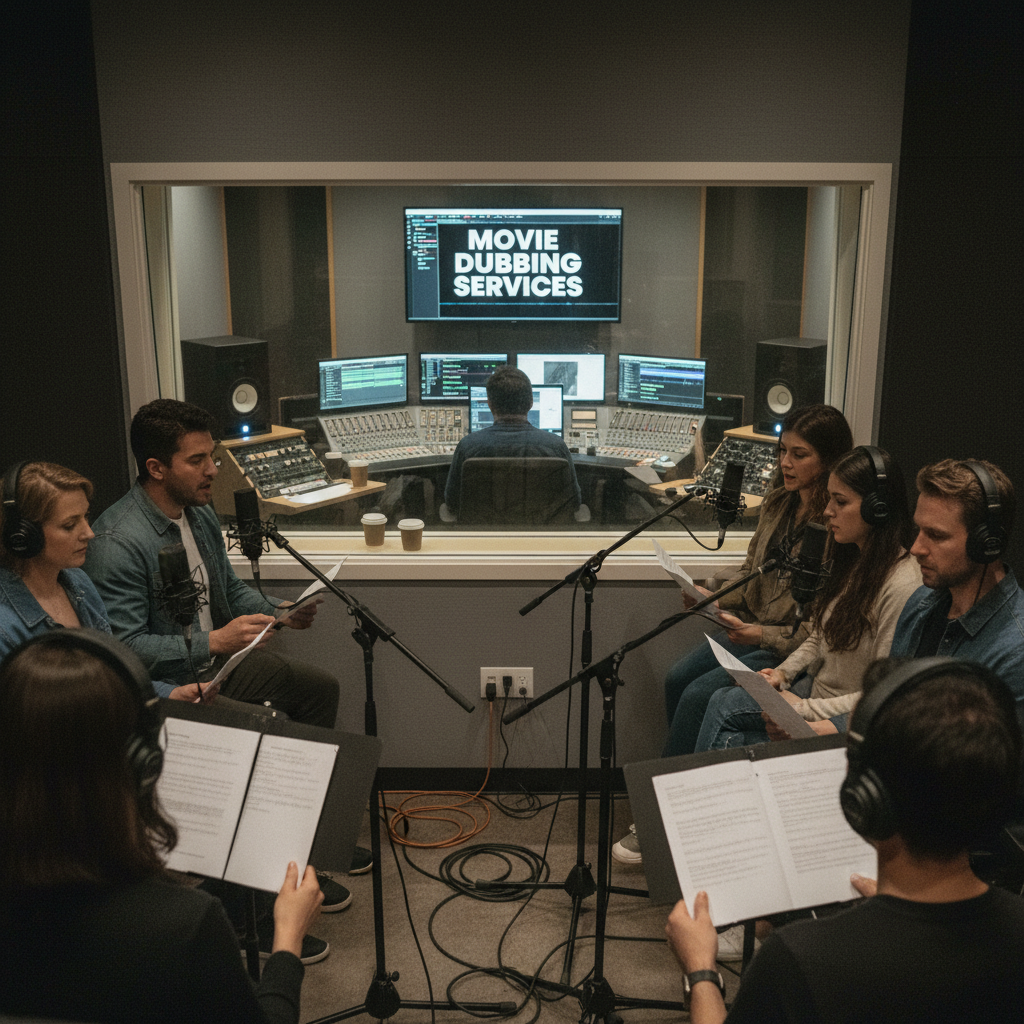
YouTube Auto-Dubbing and Multi-Language Thumbnails In 2026
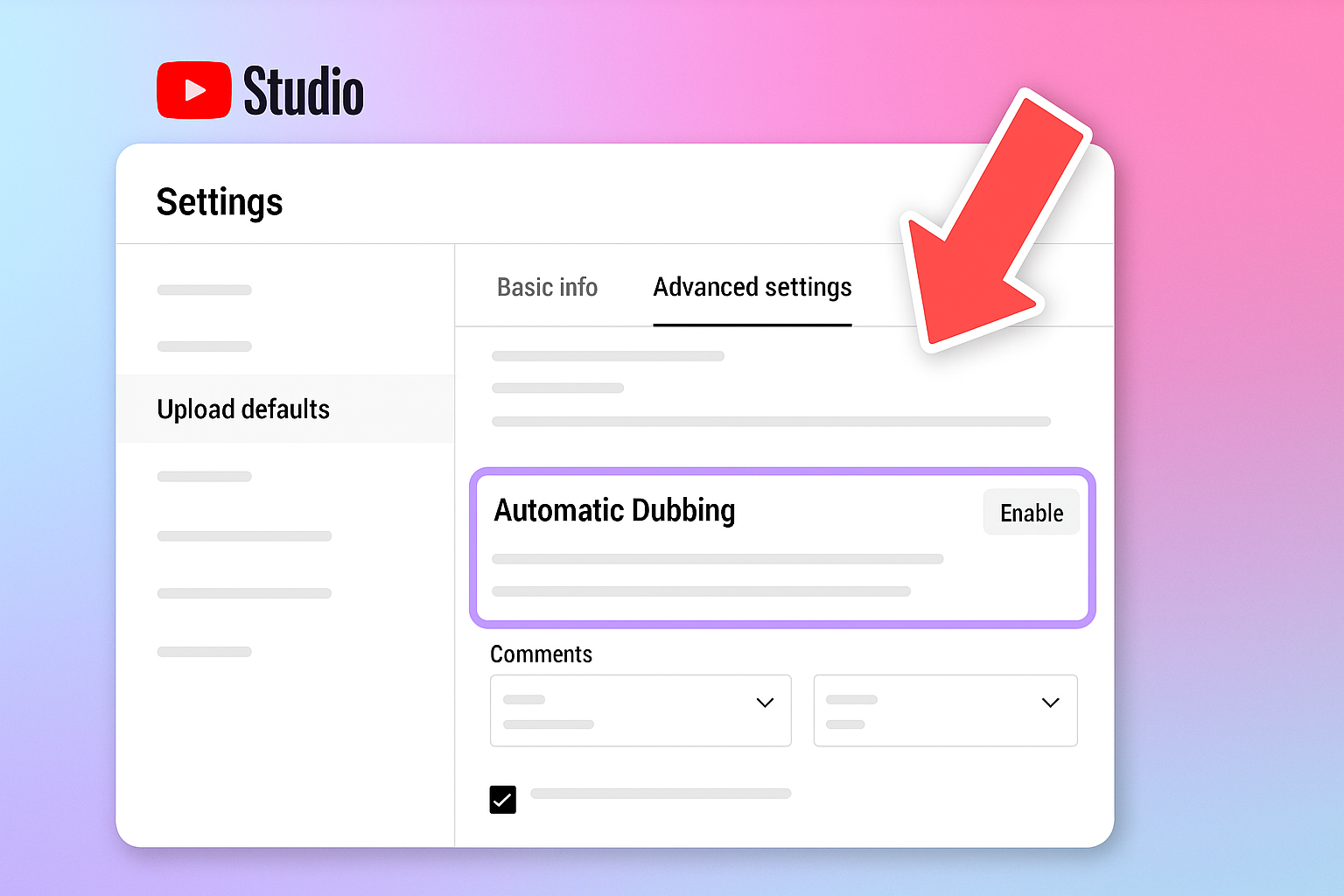
YouTube Audio Track: What It Is & How to Use It
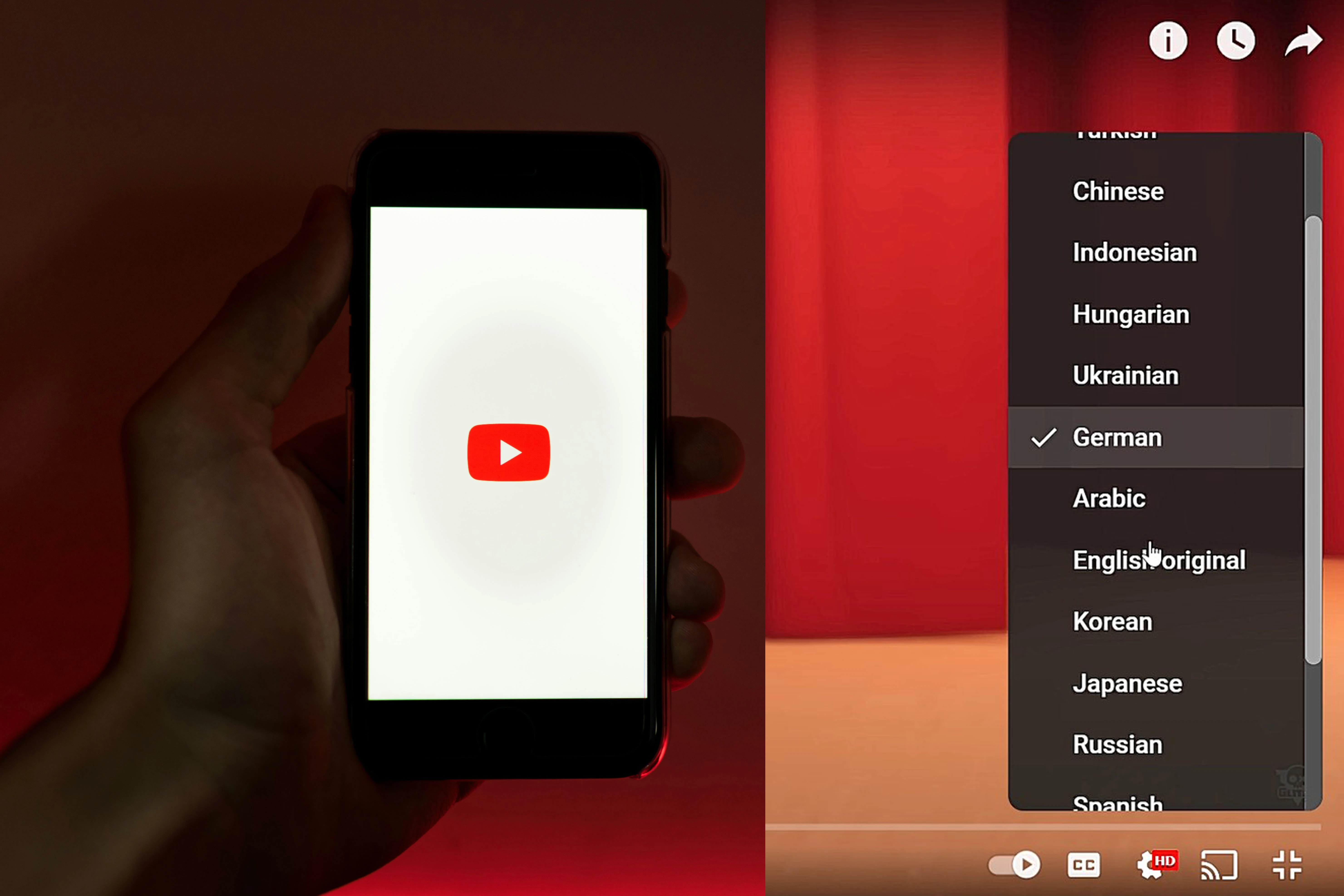
Best Dubbing Services In 2026: Cost & Options

YouTube Auto Dubbing: Who Has It, How to Disable, & More
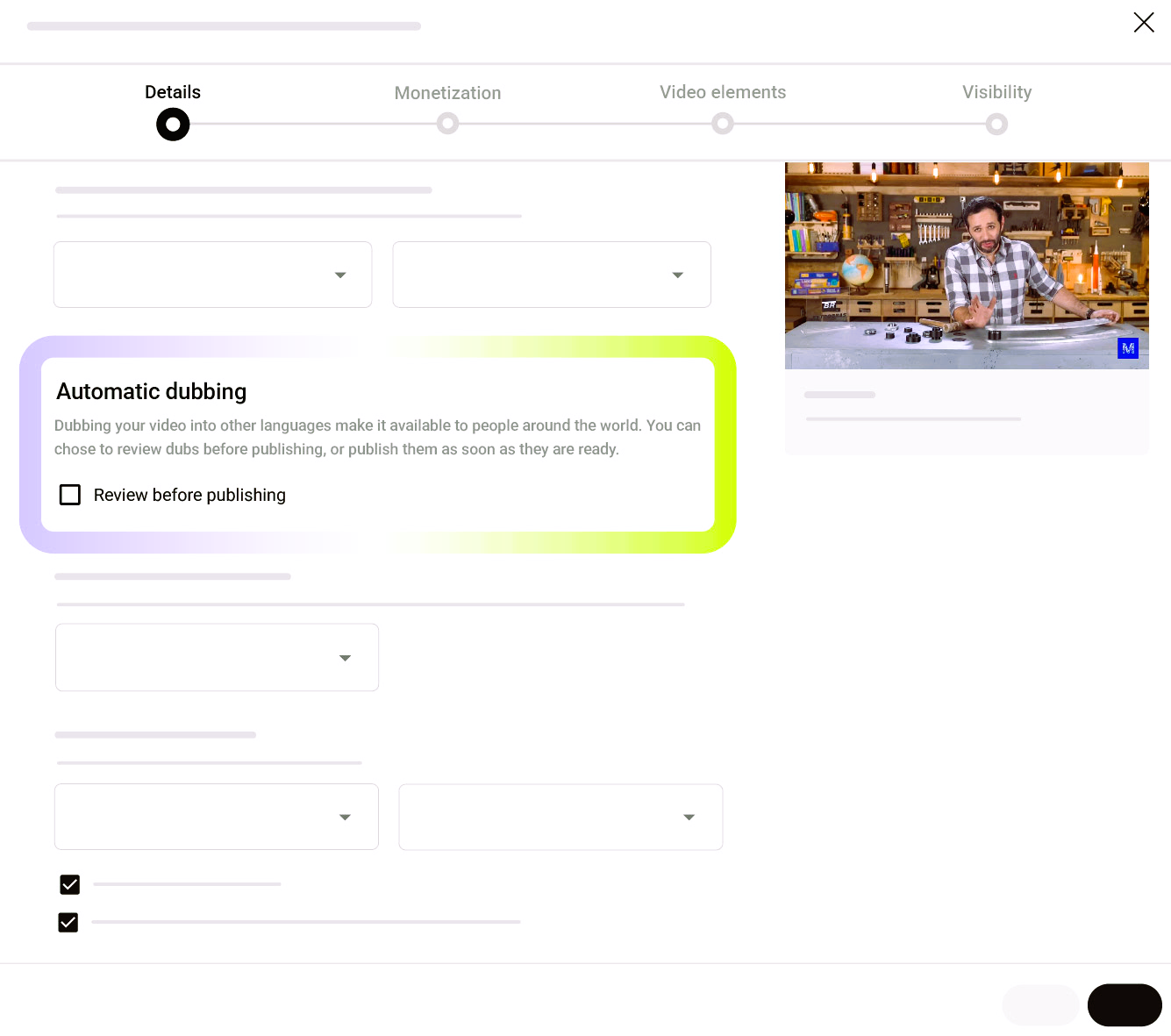
 BeMultilingualContact →
BeMultilingualContact →